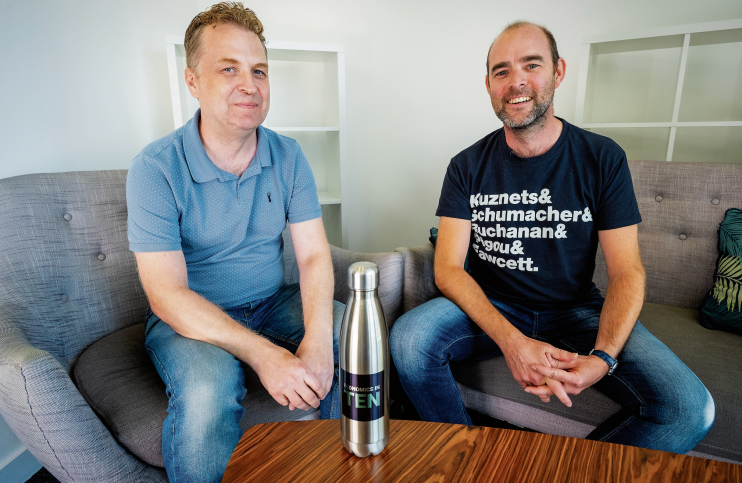Meet the duo explaining the ‘dismal science’ 10 points at a time

People think economics is boring.
It’s all about finance. It’s all about money, they say. It’s tough to argue with them given the subject’s nicknamed the “dismal science”.
But, two secondary school teachers are on a mission to change people’s minds about that.
Peter Clift (Pete) and Gavin Simpson (Gav) and are the hosts of Economics in Ten, a free podcast that illuminates how the brightest minds in the field have shaped the world we live in today – and how economics can enrich people’s lives.
Each show examines a famous economist by boiling their ideas down to an easily digestible level so that even people who don’t know what interest rates are can understand.
Pete and Gav also analyse economists on each side of the political spectrum, taking both Adam Smith and Karl Marx in turn.
The pair isolate a structural dynamic, such as inequality, and unpick the underlying factors that can embed said dynamic into an economy.
But, everything is presented with a jovial zeal that tries to peel away economics’s cold shell.
“Economics is a problem solving tool,” Gav told City A.M.
Pete agreed. “Anyone can apply it day to day to improve their lives or make better decisions,” he said.
Educational podcasts such as Economics in Ten are supported by a range of accessible introductory books that can give people a basic understanding of the subject that may even prompt them to dig deeper.
Jack Meaning and Rupal Patel’s – economists at the Bank of England – recently released Why can’t we just print more money? is a great primer. As are South Korean economist Ha-Joon Chang’s Economics: The user’s guide and Tim Harford’s The Undercover Economist.
The body of podcasts covering basic economics is now enormous.
Alongside Pete and Gav’s, there is Think Like an Economist, a great series explaining key concepts such as inflation and an economy’s long-run capacity.
Harford’s BBC Radio 4 show More or Less is perfect for anyone interested in making sense of the wall of numbers that has dominated the media since the beginning of the Covid-19 crisis.
The basic problem economics tries to solve is how to manage a society with unlimited wants but limited resources. It is a – although bleak – constraint on humanity that must be confronted.
Gav has used a blunt approach with his students to get them to understand their contribution to solving this issue.
“I just shout at them: we are problem solvers. This is what you are about, I’m giving you the tools to think: if you don’t want something to happen, then how are you going to solve that problem using economics,” he said.
If there’s one piece of advice Pete and Gav would give to someone keen to boost their economics knowledge it is reading experts with different views on how best to run an economy.
“I don’t think that could be more important… you learn a huge amount by reading about economists that you think you don’t like,” Pete stressed.
“We do learn something from any of the economists we look at… the economics that we get fed to us is very narrow,” he added.
People also think economics is too serious, but not Pete and Gav.
The podcast “is fun, ultimately, even if no one else finds it fun, we do,” Pete said.
“We know it’s too long,” Gav said. Not to everyone! The new episode on AW Phillips is out today.